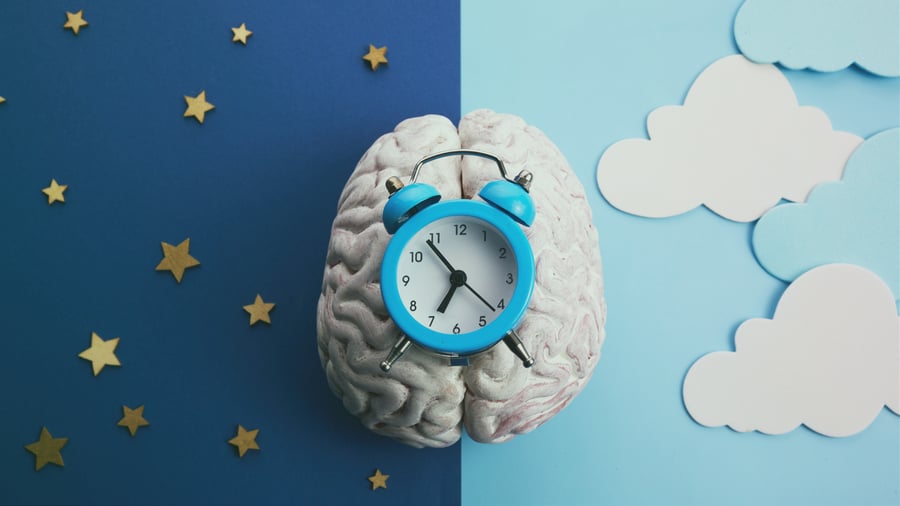How Mental Health and Mood Priorities Differ by Generation
Not long ago, seeing a therapist was considered taboo—something to keep private at all costs. Today, mental wellness is widely recognized as just as important as physical health, with people across all age groups prioritizing their emotional and cognitive wellbeing.
Proprietary research from Nutrition21 suggests that consumers focus on different aspects of mental performance depending on their life stage. Gen Z and Millennials are most concerned with mood and stress, Gen X prioritizes resilience and maintaining their edge, and Baby Boomers focus on keeping their minds sharp and engaged. In this post, we’ll explore these generational trends.
Generation Z & Millennials: Seeking Calm in a Chaotic World
Emotional well-being is a top concern of Gen Z and Millennials. A 2024 Deloitte Global survey of more than 20,000 respondents found that 40% of Gen Zs and 35% of Millennials report feeling stressed most of the time. Top sources of stress include job demands, poor work/life balance, and financial insecurity.1 About 30% of both generations say they don’t feel financially stable, and more than half live paycheck to paycheck.1
These pressures are taking a toll. Workers aged 25 to 34 are now more likely than their older colleagues to take sick days, often due to mental health concerns such as anxiousness, burnout, and depression.2 But there’s a bright spot: More than seven in ten say they feel comfortable discussing mental health at work without fear of judgment or consequences.1 This openness marks a cultural shift. For younger adults, managing emotional well-being isn’t a luxury—it’s essential.
Generation X: Balancing Strength and Stability
Ever-practical and self-reliant, Gen Xers are focused on staying both physically and mentally strong. Many are juggling careers, aging parents, and children of their own, so mental wellness is about functionality.
While no strangers to stress, Gen Xers are good at managing it, having developed skills like flexibility, innovation, and adaptability 3 Growing up as “latch key kids” during an era of high divorce rates and minimal supervision, their early experiences likely shaped their resilience and drive for balance.
This generation was the first to push for work-life balance.4 They want to be present in their kids’ lives—taking parental leave, getting ample vacation time, and attending their children’s games or recitals.
Seventy-one percent of Gen Xers say they prioritize staying active, mostly to maintain physical fitness—but increasingly, they recognize the importance of mental health.5 They’ve overcome the stigma that was attached to mental wellness during their upbringing and now see its clear link to overall well-being and job performance.6 For Gen X, strength means meeting life’s demands without losing sight of themselves.
Baby Boomers: Focusing on Cognitive Vitality
For Baby Boomers, mental wellness is about staying sharp and engaged. Now in their 60s and 70s, many are focused on preserving cognitive function—and with good reason. Studies show Boomers are experiencing greater cognitive decline than previous generations, a trend linked to higher levels of loneliness, depression, and psychiatric problems, along with lower levels of physical activity and higher obesity rates.8
In response, many Boomers are taking proactive steps to protect their brain health. Some are pursuing degrees, certifications, or enrichment courses to keep their minds active.7 Others are turning to mentally stimulating hobbies, staying socially connected, and prioritizing healthy habits.
And while they didn’t grow up with digital technology, this generation isn’t out of touch—70% use the internet regularly, and 64% are active on social media.7 Boomers are proving that growing older doesn’t have to mean slowing down—especially when it comes to brain power.
Spotlight on Mental Wellness Support
While each generation approaches mental wellness differently, the need for support is universal. Whether it’s managing stress, supporting mood, or sharpening focus, targeted nutraceuticals can help.
For mental wellness, EverZen® has been demonstrated to help support a positive mood, manage occasional anxiety, and promote a healthy stress response.* It’s a great fit for those under pressure, juggling responsibilities, or simply looking for more calm—especially relevant for Gen Z, Millennials, and Gen X.*
For cognitive performance, nooLVL®, a patented complex of Bonded Arginine Silicate and Inositol, supports focus, concentration, and working memory.* It’s ideal for people of all ages who want to stay mentally sharp—especially Baby Boomers committed to keeping the mind engaged well into later life.*
From Stress Support to cognitive clarity, meet the mental wellness needs of ever generation—with EverZen™ and nooLVL®. Learn more here:
*These statements have not been evaluated by the Food and Drug Administration. These products are not intended to diagnose, treat, cure or prevent any disease.
References
- Gen Zs and millennials find reasons for optimism despite difficult realities. Deloitte Insights. Accessed April 16, 2025. https://www2.deloitte.com/us/en/insights/topics/talent/deloitte-gen-z-millennial-survey.html
- Why Gen Z and Young Millennials Are Taking More Sick Days. Verywell Health. Accessed April 16, 2025. https://www.verywellhealth.com/why-gen-z-are-taking-more-sick-days-8742111
- Inc V& C. Gen X: Adaptable, Flexible & Reachable. Villing.com. Accessed April 16, 2025. https://villing.com/articles/generation-x/
- Work-life balance means different things to different generations. Here’s why that matters and how to manage it. Accessed April 16, 2025. https://karbonhq.com/resources/work-life-balance-is-different-for-different-generations/
- Anthony J. Gen X’s Top 4 Priorities for Wellness. Leger. July 12, 2022. Accessed April 16, 2025. https://leger360.com/en/gen-x-top-4-priorities-for-wellness/
- How Different Generations Approach Mental Health at Work. August 14, 2023. Accessed April 16, 2025. https://humanoo.com/en/magazin/generations-and-mental-health-at-work/
- Baby Boomers are Redefining What it Means to Be Old, Says CSUN Prof. CSUN Today. June 20, 2023. Accessed April 16, 2025. https://csunshinetoday.csun.edu/media-releases/baby-boomers-are-redefining-what-it-means-to-be-old-says-csun-prof/
- Zheng H. A New Look at Cohort Trend and Underlying Mechanisms in Cognitive Functioning. J Gerontol B Psychol Sci Soc Sci. 2020;76(8):1652-1663. doi:10.1093/geronb/gbaa107
Relevant posts

Related Posts

How Your Circadian Rhythm Impacts Your Mood

How to Maintain Mental Energy With Age
.png?width=900&name=genz%20%26%20millennials%20(2).png)



